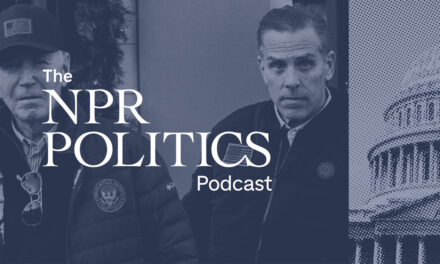
Purdue Pharma to Scale Back Promotion of OxyContin
OxyContin manufacturer Purdue Pharmaceuticals announced last week it would no longer be marketing opioids directly to physicians.
“We have restructured and significantly reduced our commercial operation and will no longer be promoting opioids to prescribers,” said the company in an official statement.
Purdue will continue to sell OxyContin, but will no longer send sales representatives to doctors’ offices. Purdue told employees it would be cutting its sales force by 50%, down to just 200 workers.
Marketing efforts will now be focused on non-opioid products.
The major policy change follows a string of lawsuits alleging Purdue contributed to the opioid crisis by misrepresenting the risks and benefits of OxyContin – a claim that has persisted for more than a decade.
OxyContin, approved by the FDA in 1995, was originally hailed as a miracle due to its ability to provide pain relief for up to 12 hours. But as many patients quickly realized, they could get a heroin-like high by crushing the tablets and either snorting or injecting an entire dose at once.
Meanwhile, OxyContin sales generated billions of dollars for Purdue.
Criticism against Purdue and its aggressive sales tactics began as early as 2000. A government report published in 2003 notes the DEA was concerned by Purdue’s marketing of OxyContin to “physicians who may not have been adequately trained in pain management.”
Purdue has long advertised OxyContin as “safer” than competitors due to a delayed-reaction mechanism that reduces the risk of abuse. But everyone knows painkillers are addictive, and OxyContin is no exception.
In 2007, Purdue executives pled guilty to accusations of misleading regulators, doctors, and patients about OxyContin’s risk of addiction and potential for abuse. Three top executives – including the company’s president – pled guilty as individuals for the criminal violation of misbranding.
Purdue shelled out $634.5 million in fines, one of the largest amounts ever paid by a drug company in this sort of case, and the execs paid a total of $34.5 million.
Last November, Purdue confirmed it is in engaged in settlement talks with state attorneys general and is “trying to come up with a global resolution of the government opioid claims.”
—
Deaths from opioid abuse increased about 13% each year between 1999 and 2009. The death toll in 2016 was more than 42,000, and numbers for 2017 are expected to be higher.
“There’s no question that the marketing of these drugs to physicians in the past has played a role in where we are today, but this move is not going to move the needle on overdose deaths,” says addictions expert Keith Ahamad. “We’re so far down the line that it’s too little, too late. There are so many other pharmaceutical companies in the game now. Physicians need to be getting their prescribing and treatment education from evidence-based guidelines rather than from pharmaceutical companies.”
Purdue’s changes in the US will not extend to Canada, where the company operates independently.
Like the US, Canada has also watched abuse and addiction climb alongside the success of OxyContin. The number of deaths for 2017 is estimated at 4,000, marking a 40% increase over 2016.
Purdue settled a Canadian lawsuit for $20 million in 2017, but did not admit guilt.



























So, Larry, what's your point? Jealous!, On your best day in your entire life how close could you come to…
A Trump Third Term? LAMO And I thought you were going to come down on the right side of this…
BLINK!!! God I made some bucks on this. I don't like day trading, but this fool just begs you to…
What votes? Coal employment been pretty flat for decades as production has dropped, extraction productivity has risen. Point is the…
Joe, The people who don’t understand the tariff strategy are the people advising trump, who developed this formula for placing…